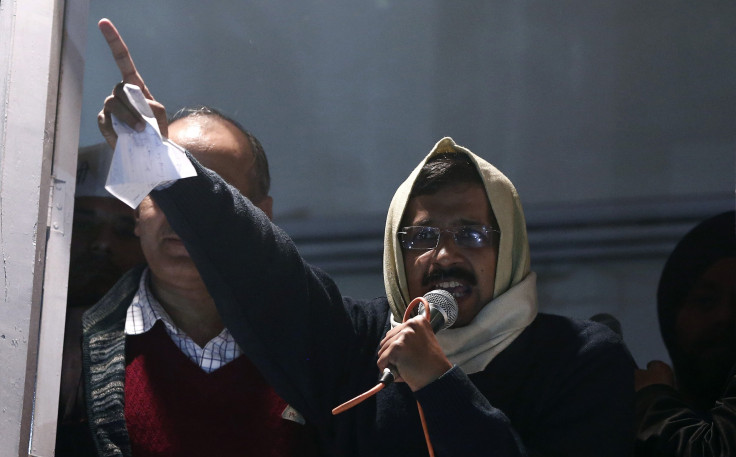Arvind Kejriwal Resigns From The Post Of Chief Minister Of New Delhi On Friday, After 48 Days Of Entering Office

After days of struggle to get his anti-corruption bill tabled in Parliament, Delhi’s Chief Minister Arvind Kejriwal resigned on Friday from his post, a mere 48 days after taking it on.
The move followed his threat, delivered on Thursday, to resign if the legislative assembly did not pass his Jan Lokpal bill. After the commotion on Friday, leading to the defeat of his motion to introduce a vote on the ombudsman bill, the chief minister quit.
“The council of ministers met this evening and decided to tender its resignation. The council also recommends dissolution of the Delhi Assembly and immediate conduct of elections to the Delhi Legislative Assembly. The same may kindly be accepted,” Kejriwal reportedly wrote in his letter addressed to the president via Lieutenant Governor Najeeb Jung.
Kejriwal said that he has asked the governor for new elections to be conducted in New Delhi immediately, to ensure the continuity of proper governance.
The ruling Congress Party had supported the recently formed Aam Aadmi Party (AAP) after it won 27 seats during the state elections last year, leaving just 8 seats to Congress and 31 seats to opposition party BJP, but denied the tabling of the anti-corruption bill with BJP.
The issue between Congress and AAP started over a 2002 federal Home Ministry order that stated that New Delhi government could only enact laws with financial implications, with the ministry’s approval. The uproar led to the adjournment of the session.
Congress and BJP have also been criticizing the AAP leader of leaving the capital of the country stranded. Sandeep Dikshit, a Congress leader, reportedly said, "It now depends on the lieutenant governor. We wanted a secular government. I don't think Kejriwal was interested, he just did some drama and ran away from responsibilities," according to a report by local news source IBN.
Earlier this week the party had filed a complaint against Mukesh Ambani, India’s richest person and the chairman of Reliance Industries, and two senior leaders of Congress, for conspiring to raise gas prices through artificial means. Within days of taking the role of chief minister of New Delhi, Kejriwal had slashed water and electricity tariffs, which led to more public support for the party.
Expressing his disapproval of the proceedings in the Parliament on Thursday and Friday, Kejriwal said, "It is sad that there is so much chaos inside the temple of democracy, mics are broken, papers torn," the Economic Times reported.
Kejriwal came to prominence during his anti-corruption movement with Anna Hazare in 2011 and together they formulated the draft of the Jan Lokpal bill to fight against corruption. On November 15, 2013, Kejriwal launched the Aam Aadmi Party to contest elections in Delhi and ultimately ended up defeating three-time chief minister belonging to Congress, Shiela Dikshit, by about 22,000 votes. The party was able to raise about $3.2 million through donations and claimed to be inspired by U.S. President Barack Obama’s campaign.
Publicity stunts like a 33-hour protest against the Delhi police, after he became chief minister, has made him a frequent presence in the news.
© Copyright IBTimes 2024. All rights reserved.






















